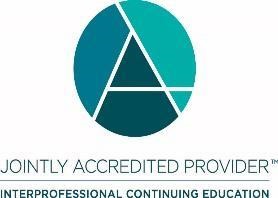AAIC 2024 On-Demand Presentations (CME, CNE, Pharmacy CEUs, and Psychology CE)
Activity Available: February 26, 2025 - September 1, 2025
Education Activity Description: Experience select presentations on-demand from the diverse scientific program of AAIC 2024. Immerse yourself in cutting-edge content while earning continuing education credit.
Jointly provided by Postgraduate Institute for Medicine and Alzheimer’s Association
Estimated time to complete activity: Approximately 1 hour per module (1.00 Credits)
Learning Objectives:
After completing this activity, the participant should be better able to:
1. Utilize advances in technology, including imaging and biomarkers to improve diagnosis and monitor disease progression in Alzheimer’s disease.
2. Review data on current animal models for Alzheimer's disease.
3. Compare the pathophysiology of aging, Alzheimer's disease and other geriatric syndromes.
4. Identify potential targets for treatment of Alzheimer's disease.
5. Discuss recommendations for the prevention of Alzheimer's disease.
6. Explain therapeutic breakthroughs in neurodegenerative disease.
7. Identify emerging strategies likely to drive future advances in Alzheimer's disease.
8. Describe the impact of Alzheimer's on individuals with the disease and their caregivers.
9. Indicate how Alzheimer's disease affects society as it relates to health economics.
Disclosure of Conflicts of Interest
Postgraduate Institute for Medicine (PIM) requires faculty, planners, and others in control of educational content to disclose all their financial relationships with ineligible companies. All identified conflicts of interest (COI) are thoroughly mitigated according to PIM policy. PIM is committed to providing its learners with high quality accredited continuing education activities and related materials that promote improvements or quality in healthcare and not a specific proprietary business interest of an ineligible company.
Planners and Managers: The PIM planners and managers have nothing to disclose. The Alzheimer’s Association planners and managers have nothing to disclose.
Scientific Program Committee Disclosure Information
Faculty Disclosure Information
For questions, contact: education@alz.org.
Accreditation Information:
Disclosure of Unlabeled Use: This educational activity may contain discussion of published and/or investigational uses of agents that are not indicated by the FDA. The planners of this activity do not recommend the use of any agent outside of the labeled indications. The opinions expressed in the educational activity are those of the faculty and do not necessarilyrepresent the views of the planners. Please refer to the official prescribing information for each product for discussion of approved indications, contraindications, and warnings.
Disclaimer: Participants have an implied responsibility to use the newly acquired information to enhance patient outcomes and their own professional development. The information presented in this activity is not meant to serve as a guideline for patient management. Any procedures, medications, or other courses of diagnosis or treatment discussed or suggested in this activity should not be used by clinicians without evaluation of their patient's conditions and possible contraindications and/or dangers in use, review of any applicable manufacturer's product information, and comparison with recommendations of other authorities.
Target Audience: This activity is intended for biochemists, geriatric psychiatrists, geriatric specialists, molecular and cell biologists, neurologists, neuroscientists, nurses, pharmacologists, primary care physicians, psychiatrists,psychologists, and radiologists involved in the research and/or care of people with Alzheimer’s and other dementias.
Statement of Purpose:
A practice gap is the difference between what healthcare professionals should or could be doing and what they are currently doing. Early and accurate diagnosis may prevent the use of costly medical resources and allow patients and family member time to prepare for future medical, financial, and legal challenges This conference will aim to provide key information that improves knowledge regarding diagnosis. The emergence of new practice-changing data at a scientific meeting may result in an immediate gap between the best evidence-based practices in patient management and the current practices of most Alzheimer’s Disease treatments.
 Joint Accreditation
Joint Accreditation
In support of improving patient care, this activity has been planned and implemented by the Postgraduate Institute for Medicine and Alzheimer's Association. Postgraduate Institute for Medicine is jointly accredited by the Accreditation Council for Continuing Medical Education (ACCME), the Accreditation Council for Pharmacy Education (ACPE), and the American Nurses Credentialing Center (ANCC), to provide continuing education for the healthcare team.
Credit Designations:
Physicians:
The Postgraduate Institute for Medicine designates this live activity for a maximum of 38.5 AMA PRA Category 1 Credit(s)TM . Physicians should claim only the credit commensurate with the extent of their participation in the activity.
Continuing Nursing Education:
The maximum number of hours awarded for this Continuing Nursing Education activity is 38.5 contact hours.
Continuing Psychologist Education:
Continuing Education (CE) credits for psychologists are provided through the co-sponsorship of the American Psychological Association (APA) Office of Continuing
Education in Psychology (CEP). The APA CEP Office maintains responsibility for the content of the programs.
Credit Designation
This program offers 38.5 continuing education credits for psychologists.
Continuing Pharmacy Education
Postgraduate Institute for Medicine designates this continuing education activity for 38.5 contact hour(s) (3.85 CEUs) of the Accreditation Council for Pharmacy Education.
Type of activity for all sessions: Application
Universal Activity Number: JA4008162-9999-25-094-
